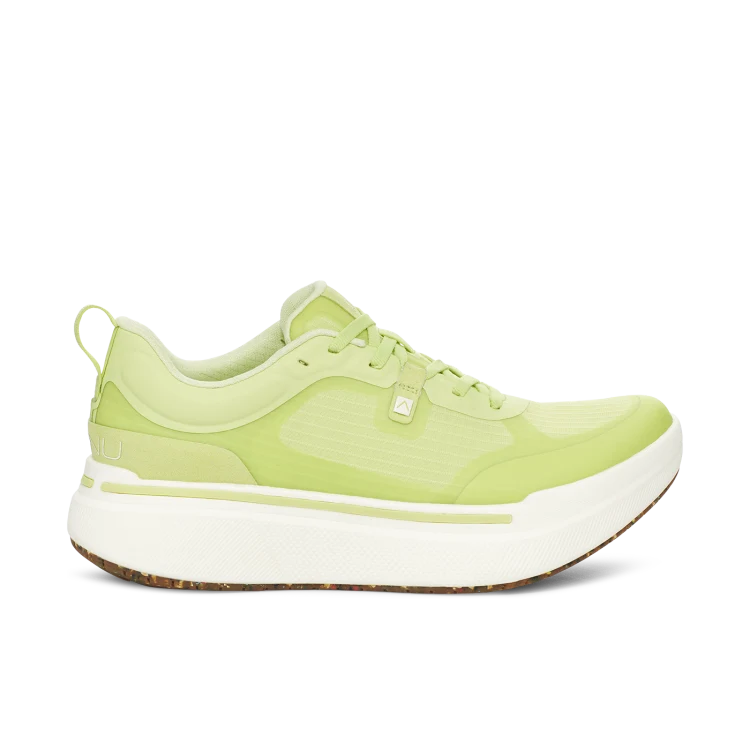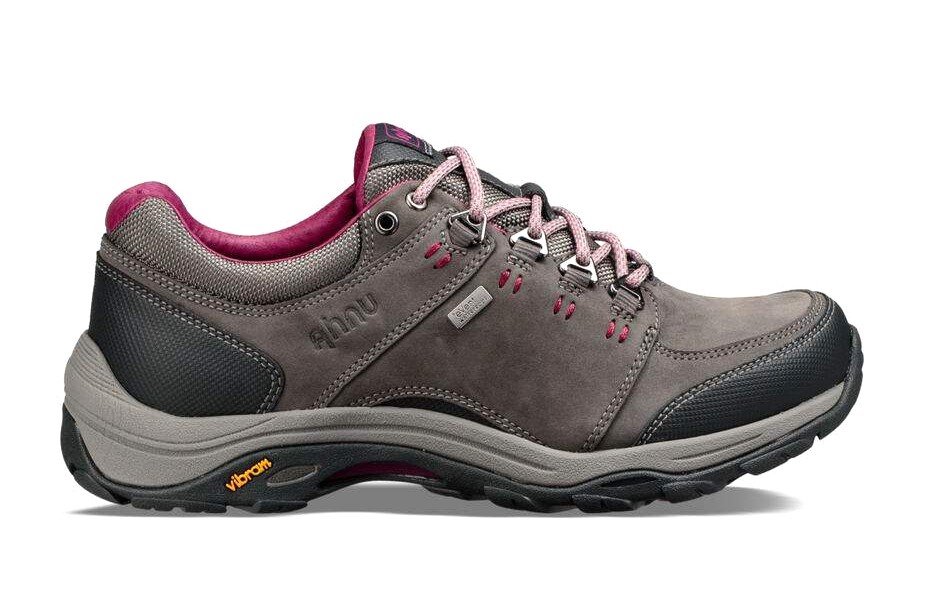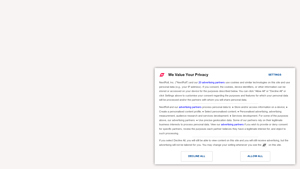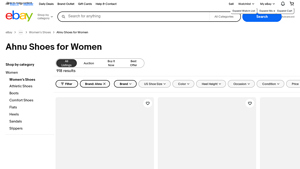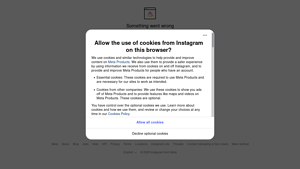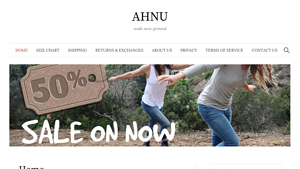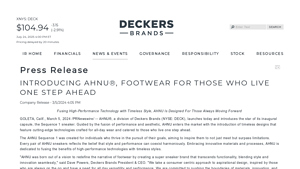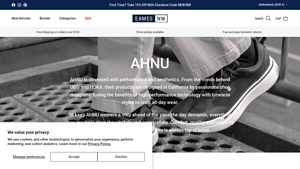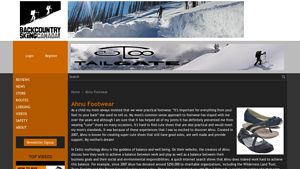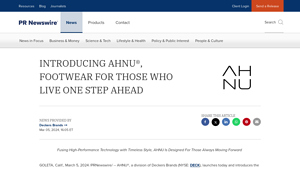Ahnu Shoes Guide: Type,Cost,Material…
Introduction: Navigating the Global Market for ahnu shoes
In today’s competitive landscape, sourcing stylish yet comfortable footwear like Ahnu shoes poses a unique challenge for international B2B buyers. As companies strive to meet the evolving demands of a diverse customer base, the need for high-performance, aesthetically pleasing shoes that cater to various lifestyles becomes paramount. This comprehensive guide aims to equip buyers from Africa, South America, the Middle East, and Europe—specifically regions like Saudi Arabia and Vietnam—with the insights necessary to navigate the global market for Ahnu shoes effectively.
Within this guide, we will explore the different types of Ahnu footwear, highlighting their applications in both casual and professional settings. We will also delve into essential factors such as supplier vetting processes, cost considerations, and the latest trends influencing buyer preferences. By providing actionable insights and a detailed understanding of the Ahnu brand’s commitment to quality and innovation, this guide empowers B2B buyers to make informed purchasing decisions.
Whether your focus is on enhancing employee comfort or expanding your retail offerings, understanding the nuances of Ahnu shoes will enable you to align your procurement strategies with market demands. As we journey through this guide, you’ll gain the knowledge needed to confidently navigate the complexities of sourcing Ahnu shoes, ensuring your business remains at the forefront of customer satisfaction and style.
Understanding ahnu shoes Types and Variations
| Type Name | Key Distinguishing Features | Primary B2B Applications | Brief Pros & Cons for Buyers |
|---|---|---|---|
| Sequence 1.1 Sport | Lightweight design, responsive cushioning, modern aesthetics | Retail, e-commerce, corporate gifts | Pros: Stylish, versatile for various occasions. Cons: Higher price point. |
| Sequence 1.1 Suede | Premium suede upper, same supportive base as Sequence 1.1 Sport | Fashion boutiques, lifestyle stores | Pros: Elevated style for casual and semi-formal wear. Cons: Requires careful maintenance. |
| Sequence 1 Low | Low-top design, breathable materials, casual style | Casual wear retailers, promotional events | Pros: Easy to wear, suitable for everyday use. Cons: Less ankle support compared to mid/high tops. |
| Sequence 1 Mid | Mid-top design for additional ankle support, stylish color options | Specialty footwear shops, outdoor retailers | Pros: Enhanced stability, fashionable. Cons: May feel bulkier for some users. |
| Sequence 1 High | High-top design, maximum support and protection, trendy aesthetics | Sports retailers, outdoor gear shops | Pros: Great for active wearers needing support. Cons: Can be too warm for hot climates. |
What Are the Key Characteristics of Sequence 1.1 Sport Shoes?
The Sequence 1.1 Sport shoes are designed for versatility and comfort, making them ideal for both casual and active settings. They feature a lightweight construction and responsive cushioning, ensuring all-day wearability. This type is particularly suitable for retail and e-commerce applications, as it appeals to a wide demographic looking for stylish yet functional footwear. B2B buyers should consider the higher price point but recognize the potential for strong consumer demand due to the shoe’s aesthetic appeal.
How Does the Sequence 1.1 Suede Differ from Other Styles?
The Sequence 1.1 Suede is distinguished by its premium suede upper, offering a more sophisticated look while maintaining the same supportive base as the Sequence 1.1 Sport. This shoe is ideal for fashion boutiques and lifestyle stores that cater to customers seeking both style and comfort. B2B buyers should note that while these shoes can elevate casual outfits, they require more maintenance to keep the suede looking pristine, which may impact resale considerations.
What Are the Benefits of the Sequence 1 Low Style?
The Sequence 1 Low shoes are characterized by their low-top design and breathable materials, making them an excellent choice for everyday wear. These shoes are commonly found in casual wear retailers and are popular for promotional events due to their comfort and ease of wear. Buyers should appreciate their affordability and versatility, although they may offer less ankle support compared to mid or high-top options, which could be a consideration for more active consumers.
Why Choose the Sequence 1 Mid for Retail?
The Sequence 1 Mid shoes provide a balance between style and support with their mid-top design. They are perfect for specialty footwear shops and outdoor retailers, appealing to customers who desire both fashion and function. These shoes enhance stability and are available in various stylish colors, making them a great addition to any retailer’s inventory. Buyers should be aware that while they offer more support, some users may find them bulkier, which could affect their purchasing decisions.
What Makes the Sequence 1 High Suitable for Active Wear?
The Sequence 1 High shoes are designed with maximum support and protection in mind, featuring a high-top design that is ideal for active wearers. They are commonly stocked in sports retailers and outdoor gear shops, targeting customers who need extra ankle support during physical activities. While these shoes are perfect for active lifestyles, buyers should consider that their high-top design may be too warm for hotter climates, which could limit their appeal in certain regions.
Key Industrial Applications of ahnu shoes
| Industry/Sector | Specific Application of ahnu shoes | Value/Benefit for the Business | Key Sourcing Considerations for this Application |
|---|---|---|---|
| Retail | Employee Uniforms | Enhances employee comfort and reduces fatigue, leading to increased productivity. | Availability of various sizes and styles to accommodate diverse workforce. |
| Hospitality | Guest Services & Concierge Staff | Provides stylish comfort for staff while enhancing guest experience through professional appearance. | Need for bulk orders and customization options for branding. |
| Outdoor Recreation | Guided Tours and Adventure Companies | Offers durable, comfortable footwear for guides, ensuring safety and performance in diverse terrains. | Consideration for durability and traction in various weather conditions. |
| Healthcare | Staff Footwear in Clinics and Hospitals | Supports healthcare workers with all-day comfort, reducing foot-related health issues. | Compliance with health and safety regulations regarding workplace footwear. |
| Travel and Tourism | Travel Agencies and Tour Operators | Provides travelers with versatile footwear options that combine style and comfort for various activities. | Focus on international shipping logistics and customer service support. |
How Are Ahnu Shoes Utilized in the Retail Sector for Employee Uniforms?
In the retail sector, ahnu shoes are increasingly adopted as part of employee uniforms. The emphasis on comfort allows staff to maintain high energy levels during long shifts, which directly impacts customer service quality. Retail environments often require employees to be on their feet for extended periods, making it essential to provide footwear that mitigates fatigue. Buyers in this sector should consider the availability of various styles and sizes to meet the diverse needs of their workforce.
What Role Do Ahnu Shoes Play in the Hospitality Industry for Guest Services?
In hospitality, ahnu shoes serve as an excellent choice for guest services and concierge staff. The combination of style and comfort ensures that staff not only look professional but also feel comfortable while attending to guests. This dual benefit enhances the overall guest experience, as staff can move swiftly and efficiently. When sourcing ahnu shoes, businesses should prioritize bulk orders and customization options to align with their branding requirements.
How Do Adventure Companies Benefit from Using Ahnu Shoes for Guided Tours?
Outdoor recreation companies, particularly those offering guided tours, utilize ahnu shoes for their guides. The shoes are designed to provide comfort and support in rugged terrains, ensuring safety and performance during activities. This is crucial for maintaining the safety of both guides and tourists. When sourcing for this application, companies should focus on the durability and traction of the footwear, especially in varying weather conditions.
In What Ways Do Healthcare Facilities Benefit from Ahnu Shoes for Staff?
Healthcare facilities benefit significantly from incorporating ahnu shoes into their staff footwear options. These shoes provide essential comfort for healthcare workers who spend long hours on their feet, helping to reduce common foot-related health issues. Ensuring compliance with health and safety regulations is vital, and buyers must consider footwear that meets these standards while providing adequate support and cushioning.
How Can Travel Agencies Leverage Ahnu Shoes for Their Clients?
Travel agencies and tour operators can leverage ahnu shoes by recommending them as versatile footwear options for travelers. Designed to be stylish yet comfortable, these shoes cater to various activities, from sightseeing to casual dining. Agencies should focus on international shipping logistics and customer service support when sourcing ahnu shoes, ensuring that clients receive the best possible experience during their travels.
3 Common User Pain Points for ‘ahnu shoes’ & Their Solutions
Scenario 1: Sizing and Fit Challenges for Diverse Markets
The Problem: B2B buyers often face significant challenges when sourcing footwear that caters to a wide range of sizes and fits, especially in international markets. In regions like Africa and the Middle East, foot shape and size can vary considerably, leading to difficulties in ensuring that products appeal to local consumers. Additionally, buyers may worry about the risk of returns and exchanges if the sizes do not align with local standards, which can lead to financial losses and inventory management issues.
The Solution: To effectively address sizing and fit challenges, B2B buyers should leverage detailed sizing charts provided by AHNU and consider establishing a localized fitting guide tailored to their specific markets. This can involve conducting market research to understand prevalent foot sizes and shapes in the target region. Buyers could also arrange for sample orders to assess the fit and comfort of AHNU shoes before committing to larger purchases. By providing comprehensive sizing information and facilitating fit trials, businesses can minimize the risk of returns and enhance customer satisfaction, ultimately leading to increased sales and brand loyalty.
Scenario 2: Balancing Style with Comfort in Professional Settings
The Problem: In many professional environments, particularly in Europe and South America, there is a growing demand for footwear that marries style with comfort. Buyers may find it challenging to source shoes that meet the aesthetic expectations of the workplace while also providing the all-day comfort needed for employees who are on their feet. This can lead to dissatisfaction among staff and potential productivity losses if the footwear does not meet their needs.
The Solution: AHNU shoes are designed with both comfort and style in mind, making them an excellent choice for the modern workplace. B2B buyers should focus on promoting AHNU’s versatile designs that can transition seamlessly from professional settings to casual outings. Providing training for retail staff on how to communicate the unique selling points of AHNU shoes, such as the integration of elite running technology and chic aesthetics, will help buyers effectively market these products. Additionally, offering employees a choice between styles can cater to individual preferences, further enhancing employee satisfaction and productivity.
Scenario 3: Sustainability Concerns in Footwear Sourcing
The Problem: As global awareness of environmental issues increases, many B2B buyers are under pressure to source products that align with sustainable practices. Buyers in regions like Africa and Europe are particularly keen on ensuring that the products they offer meet eco-friendly standards. However, they may struggle to find footwear brands that not only provide high-quality products but also prioritize sustainability in their manufacturing processes.
The Solution: AHNU’s commitment to sustainability offers a viable solution for B2B buyers looking to meet these market demands. Buyers should investigate AHNU’s sustainable practices, such as the use of eco-friendly materials and ethical manufacturing processes. By emphasizing these aspects in their marketing strategies, buyers can attract environmentally conscious consumers. Furthermore, buyers should consider collaborating with AHNU to create co-branded marketing campaigns that highlight sustainability, thus positioning themselves as leaders in responsible sourcing. This approach not only helps meet consumer expectations but also enhances brand reputation and loyalty in a competitive market.
Strategic Material Selection Guide for ahnu shoes
What Are the Key Materials Used in Ahnu Shoes and Their Properties?
When selecting materials for Ahnu shoes, several factors come into play, including performance, durability, and cost-effectiveness. Here, we analyze four common materials used in Ahnu footwear, focusing on their properties, advantages, disadvantages, and considerations for international B2B buyers.
How Does Suede Contribute to the Performance of Ahnu Shoes?
Suede is a popular upper material for various Ahnu shoe models, such as the Sequence 1.1 Suede. Known for its soft texture and stylish appearance, suede offers a unique aesthetic appeal.
Key Properties: Suede is breathable, providing comfort in warmer conditions, and has a moderate resistance to water and stains when treated. However, it is less durable than other materials in harsh weather conditions.
Pros & Cons: The primary advantage of suede is its luxurious look and feel, making it suitable for casual and semi-formal settings. However, it requires careful maintenance to prevent damage and may not be ideal for rugged outdoor use, which can limit its application.
Impact on Application: Suede’s softness and flexibility enhance comfort but can compromise durability in extreme conditions. This makes it best suited for urban environments or light outdoor activities.
Considerations for International Buyers: Buyers from regions with high humidity or frequent rain, such as parts of South America and Southeast Asia, should consider the need for protective treatments to enhance suede’s water resistance. Compliance with local standards for textile materials is also essential.
What Role Does Durable Rubber Play in Ahnu Footwear?
Durable rubber is often used in the outsoles of Ahnu shoes, providing essential traction and stability.
Key Properties: This material is known for its excellent abrasion resistance and flexibility, allowing it to perform well in various terrains. It can withstand a wide range of temperatures, making it suitable for both hot and cold climates.
Pros & Cons: Durable rubber offers significant advantages in terms of longevity and grip, making it ideal for outdoor activities. However, its manufacturing process can be complex, leading to higher production costs.
Impact on Application: The use of durable rubber enhances the shoe’s performance in diverse environments, including hiking and walking on uneven surfaces.
Considerations for International Buyers: Buyers should be aware of local regulations regarding rubber sourcing and environmental impact, especially in regions like Europe, where sustainability standards are stringent.
How Do Soft Foams Enhance Comfort in Ahnu Shoes?
Soft foams are integral to the cushioning systems in Ahnu shoes, providing exceptional comfort for all-day wear.
Key Properties: These foams are lightweight, highly compressible, and provide excellent shock absorption. They are generally resistant to temperature fluctuations, maintaining their performance in various climates.
Pros & Cons: The primary advantage of soft foams is their ability to reduce fatigue during prolonged use. However, they may compress over time, leading to reduced cushioning effectiveness, which could necessitate earlier replacement.
Impact on Application: Soft foams make Ahnu shoes suitable for urban environments where individuals are on their feet for extended periods, such as in retail or hospitality.
Considerations for International Buyers: Buyers should consider the foam’s compliance with health and safety standards, particularly in regions like the Middle East, where regulations may differ significantly from those in Europe or South America.
What Benefits Do Carbon Plates Bring to Ahnu Shoes?
Carbon plates are a newer innovation in Ahnu shoe designs, aimed at enhancing performance.
Key Properties: Carbon plates provide stiffness and energy return, improving propulsion during movement. They can withstand high pressure without deforming, making them suitable for high-performance applications.
Pros & Cons: The key advantage is the enhanced efficiency during physical activities, making these shoes ideal for both casual wear and athletic pursuits. However, the incorporation of carbon plates can increase production costs and complexity.
Impact on Application: Shoes with carbon plates are particularly beneficial for users who engage in running or high-impact activities, offering a competitive edge.
Considerations for International Buyers: Buyers should ensure that the carbon materials comply with international standards for safety and performance, particularly in regions with rigorous testing protocols like Europe.
Summary of Material Properties for Ahnu Shoes
| Material | Typical Use Case for ahnu shoes | Key Advantage | Key Disadvantage/Limitation | Relative Cost (Low/Med/High) |
|---|---|---|---|---|
| Suede | Casual and semi-formal wear | Luxurious look and comfort | Requires maintenance, less durable | Medium |
| Durable Rubber | Outsoles for traction and stability | Excellent grip and longevity | Complex manufacturing | High |
| Soft Foams | Cushioning for all-day comfort | Reduces fatigue during use | Compresses over time | Medium |
| Carbon Plates | High-performance applications | Enhanced efficiency and propulsion | Higher production costs | High |
This comprehensive analysis of materials used in Ahnu shoes provides valuable insights for B2B buyers, enabling informed decisions based on performance, durability, and compliance with regional standards.
In-depth Look: Manufacturing Processes and Quality Assurance for ahnu shoes
What Are the Key Stages in the Manufacturing Process of AHNU Shoes?
The manufacturing process for AHNU shoes is meticulously designed to ensure high-quality production while maintaining efficiency. The process can be broken down into four main stages: material preparation, forming, assembly, and finishing.
How Are Materials Prepared for AHNU Shoes?
The first stage involves sourcing and preparing high-quality materials. AHNU is committed to using world-class materials, including advanced foams, durable rubber, and innovative fabrics. This sourcing process often includes rigorous supplier evaluations to ensure compliance with quality standards. Materials are then cut and treated to prepare them for the forming stage, ensuring that each component meets the necessary specifications for durability and performance.
What Techniques Are Used in the Forming Stage of AHNU Shoe Production?
During the forming stage, the prepared materials are shaped into components that will become the shoe. Techniques such as injection molding are commonly employed to create the shoe’s sole, which incorporates advanced technologies like rocker geometry and carbon plates. These techniques not only enhance the shoe’s performance but also contribute to its comfort. The upper part of the shoe is constructed using specialized stitching and bonding techniques, ensuring a secure fit and aesthetic appeal.
How Is the Assembly of AHNU Shoes Conducted?
In the assembly stage, the various components are brought together. This process requires skilled labor to ensure precision in the placement and attachment of parts, including the upper, midsole, and outsole. Quality checks are integrated throughout this stage to identify any defects early on. Automated systems may also be used to streamline assembly while maintaining high standards of quality and craftsmanship.
What Finishing Touches Are Applied to AHNU Shoes Before They Are Released?
The finishing stage involves final inspections and quality assurance checks. Each shoe undergoes a thorough examination to ensure it meets AHNU’s quality standards. This includes checks for aesthetic elements like color consistency and stitching quality, as well as functional aspects such as sole durability and comfort features. Once approved, shoes are packaged for distribution, ensuring they reach B2B buyers in pristine condition.
What Quality Assurance Standards Are Followed in AHNU Shoe Manufacturing?
AHNU adheres to several international quality assurance standards to ensure that their products are reliable and safe for consumers. One of the most prominent standards is ISO 9001, which focuses on maintaining a quality management system that enhances customer satisfaction through consistent quality products and services.
How Does AHNU Ensure Compliance with Industry-Specific Quality Standards?
In addition to ISO 9001, AHNU may also comply with other industry-specific standards such as CE marking, which indicates compliance with health, safety, and environmental protection standards for products sold within the European Economic Area. For B2B buyers in regions like Africa, South America, and the Middle East, understanding these certifications can be crucial for market entry and consumer safety.
What Are the Key Quality Control Checkpoints in AHNU Shoe Production?
Quality control (QC) is integrated at multiple checkpoints throughout the manufacturing process. The main checkpoints include:
-
Incoming Quality Control (IQC): This stage checks the quality of raw materials before production begins, ensuring that only the best materials are used.
-
In-Process Quality Control (IPQC): Continuous monitoring occurs during the manufacturing process to catch any defects early and ensure adherence to quality standards.
-
Final Quality Control (FQC): A comprehensive inspection of the finished product, verifying that all quality standards have been met before the shoes are packaged for shipment.
What Common Testing Methods Are Employed to Ensure Quality in AHNU Shoes?
Testing methods for AHNU shoes include physical tests for durability, such as abrasion resistance and tensile strength, as well as comfort assessments involving pressure distribution and cushioning effectiveness. Additionally, environmental testing may be conducted to ensure that materials can withstand various climate conditions, which is particularly important for international buyers who may operate in diverse environments.
How Can B2B Buyers Verify the Quality Control Processes of AHNU Suppliers?
B2B buyers looking to ensure the quality of AHNU shoes should consider several verification methods:
-
Supplier Audits: Conducting regular audits of suppliers can provide insights into their manufacturing practices and adherence to quality standards.
-
Quality Reports: Requesting detailed QC reports from suppliers can offer transparency into the testing processes and outcomes.
-
Third-Party Inspections: Engaging independent inspection agencies can provide an unbiased evaluation of the manufacturing quality and standards compliance.
What Are the Specific QC Considerations for International Buyers from Africa, South America, the Middle East, and Europe?
International buyers must navigate various regulations and standards unique to their regions. For instance, understanding local consumer protection laws and import regulations is crucial for compliance. In regions like the Middle East, where specific certifications may be required for footwear, buyers should ensure that their suppliers can meet these demands. Furthermore, cultural preferences and market trends in these regions can influence the design and functionality requirements of AHNU shoes, necessitating close collaboration with suppliers.
Conclusion: Why Is a Robust Manufacturing and Quality Assurance Process Essential for AHNU Shoes?
The manufacturing and quality assurance processes for AHNU shoes are integral to the brand’s promise of comfort, performance, and style. By adhering to international standards and implementing rigorous QC measures, AHNU ensures that its products meet the expectations of B2B buyers globally. For businesses looking to invest in high-quality footwear, understanding these processes can provide valuable insights into supplier reliability and product excellence.
Practical Sourcing Guide: A Step-by-Step Checklist for ‘ahnu shoes’
To assist international B2B buyers in successfully sourcing AHNU shoes, this practical guide outlines essential steps to ensure a streamlined procurement process. By following this checklist, buyers can make informed decisions, ensuring they acquire high-quality, stylish, and comfortable footwear that meets their business needs.
Step 1: Identify Your Target Market Requirements
Understanding the specific needs of your target market is crucial. Consider factors such as local fashion trends, climate conditions, and customer preferences in regions like Africa, South America, the Middle East, and Europe. Tailoring your product selection to meet these criteria will increase the likelihood of successful sales.
Step 2: Define Your Technical Specifications
Establish clear technical specifications for the AHNU shoes you wish to procure. This includes details about materials, styles, sizes, and performance features. Having well-defined specifications helps ensure that the products you source align with your brand’s quality standards and customer expectations.
Step 3: Evaluate Potential Suppliers
Before making commitments, thoroughly vet potential suppliers. Request detailed company profiles, including their manufacturing capabilities, quality control processes, and previous client references. It’s beneficial to explore suppliers who have experience in the footwear industry and a track record of reliability, especially those that cater to international markets.
- Check for Industry Certifications: Ensure suppliers possess relevant certifications that demonstrate compliance with international quality and safety standards.
- Assess Production Capacity: Verify that the supplier can meet your order volume and delivery timelines, especially during peak seasons.
Step 4: Request Samples for Quality Assessment
Always request samples of the AHNU shoes before finalizing your order. This allows you to assess the quality, fit, and overall design of the shoes firsthand. Pay attention to details such as stitching, materials used, and comfort features, as these will impact customer satisfaction.
Step 5: Negotiate Pricing and Terms
Once you have identified a suitable supplier, engage in negotiations regarding pricing, payment terms, and delivery schedules. Be clear about your budget constraints and expectations to ensure both parties are aligned. Understanding the total cost of ownership, including shipping and tariffs, is essential for accurate budgeting.
Step 6: Establish a Reliable Logistics Plan
Develop a logistics plan that includes shipping methods, customs clearance, and warehousing options. Efficient logistics are vital for timely delivery and inventory management. Consider working with logistics partners who have experience handling international shipments to navigate potential challenges.
Step 7: Monitor Ongoing Supplier Performance
After the initial procurement, continuously monitor your supplier’s performance. Establish key performance indicators (KPIs) related to quality, delivery times, and responsiveness to ensure they meet your expectations. Regular communication and feedback can help maintain a strong relationship and address any issues proactively.
By following these steps, B2B buyers can effectively navigate the sourcing process for AHNU shoes, ensuring they meet market demands while maintaining quality and style standards.
Comprehensive Cost and Pricing Analysis for ahnu shoes Sourcing
What Are the Key Cost Components in Sourcing AHNU Shoes?
When considering sourcing AHNU shoes, it’s crucial to analyze the various cost components involved in the overall price structure. The primary cost elements include:
-
Materials: AHNU shoes are crafted from high-quality materials like soft foams, durable rubber, and advanced textiles such as suede. These premium materials contribute significantly to the shoe’s comfort and durability, affecting the overall cost.
-
Labor: Labor costs vary depending on the manufacturing location. Regions with higher labor costs may impact the final pricing. However, the emphasis on skilled craftsmanship in producing performance footwear can justify higher labor expenses.
-
Manufacturing Overhead: This includes costs related to utilities, equipment maintenance, and factory management. Efficient production processes can help mitigate these costs, but they remain a critical factor in pricing.
-
Tooling: The initial setup for molds and production equipment can be substantial, especially for custom designs or specific styles. This cost is typically amortized over larger production runs.
-
Quality Control (QC): Ensuring that each pair of shoes meets AHNU’s quality standards incurs additional costs. Rigorous QC processes are essential to maintain the brand’s reputation, but they also influence the final price.
-
Logistics: Shipping costs can be significant, particularly for international buyers. Factors such as distance, shipping method, and freight rates will affect overall logistics costs.
-
Margin: The profit margin added by the manufacturer or distributor is a key component of the pricing structure. This varies based on market conditions and competitive positioning.
How Do Pricing Influencers Impact the Cost of AHNU Shoes?
Several factors influence the pricing of AHNU shoes in the B2B marketplace:
-
Volume/MOQ: The minimum order quantity (MOQ) plays a critical role in pricing. Larger orders can often secure better pricing due to economies of scale, while smaller orders might incur higher per-unit costs.
-
Specifications and Customization: Custom designs or specific features may increase the cost. Tailoring shoes to meet regional preferences or regulatory requirements can also impact pricing.
-
Materials and Quality Certifications: The choice of materials and the certifications for sustainability or quality assurance can affect costs. Buyers should be aware of the implications of selecting higher-quality materials.
-
Supplier Factors: The reputation and reliability of the supplier can influence pricing. Established suppliers may charge a premium for their products due to perceived quality and service.
-
Incoterms: Understanding the Incoterms agreed upon in the contract is essential. They determine the allocation of shipping costs and responsibilities, which can significantly affect the total landed cost.
What Buyer Tips Can Help in Negotiating Costs for AHNU Shoes?
For international B2B buyers, particularly those from Africa, South America, the Middle East, and Europe, effective negotiation strategies can lead to cost savings:
-
Leverage Volume Discounts: Always aim for larger orders to take advantage of bulk pricing. This approach not only lowers per-unit costs but also strengthens your bargaining position.
-
Consider Total Cost of Ownership (TCO): Evaluate the long-term costs associated with the shoes, including durability, maintenance, and potential warranty claims. A higher upfront cost may lead to lower TCO if the shoes last longer and require fewer replacements.
-
Negotiate Payment Terms: Flexible payment options can improve cash flow. Discuss terms that may allow for staggered payments or discounts for early settlement.
-
Explore Multiple Suppliers: Don’t limit your sourcing to a single supplier. Engaging with multiple manufacturers can provide insights into competitive pricing and quality variations.
-
Understand Local Market Dynamics: Familiarize yourself with local market conditions, including shipping costs and import duties, which can significantly impact the final price of AHNU shoes.
Disclaimer on Indicative Prices
Prices for AHNU shoes can vary based on numerous factors, including market conditions, supplier pricing strategies, and regional economic factors. The indicative prices provided in this analysis should be used as a reference point and not as definitive figures. Always conduct thorough market research and supplier negotiations to obtain accurate pricing for your specific needs.
Alternatives Analysis: Comparing ahnu shoes With Other Solutions
Exploring Alternatives to Ahnu Shoes for B2B Buyers
In the competitive landscape of performance footwear, understanding alternatives to Ahnu shoes is essential for B2B buyers seeking optimal solutions for their customers. Ahnu shoes are designed with a focus on comfort, style, and innovative materials, making them a popular choice for all-day wear. However, other options exist that may cater to specific needs or preferences. This analysis compares Ahnu shoes with two viable alternatives: Merrell shoes and Nike’s React series.
| Comparison Aspect | Ahnu Shoes | Merrell Shoes | Nike React Series |
|---|---|---|---|
| Performance | High-performance cushioning and support | Excellent traction and durability | Responsive cushioning with energy return |
| Cost | $240 average per pair | $100 – $200 per pair | $130 – $160 per pair |
| Ease of Implementation | Simple ordering process | Widely available through various retailers | Available online and in stores |
| Maintenance | Moderate; requires regular cleaning | Low; generally easy to clean | Low; resistant materials minimize upkeep |
| Best Use Case | Daily wear for urban environments | Hiking and outdoor activities | Casual wear and light training |
In-Depth Analysis of Alternatives
Merrell Shoes
Merrell shoes are renowned for their rugged design and outdoor functionality. They provide excellent traction and durability, making them ideal for hiking and other outdoor activities. While they may not offer the same level of cushioned comfort as Ahnu shoes, they excel in environments where stability and grip are paramount. The pricing range is generally more affordable, which can appeal to budget-conscious buyers. However, their style may not align with urban fashion trends, potentially limiting their market appeal.
Nike React Series
The Nike React series focuses on providing a responsive and comfortable experience, particularly for those engaged in casual running or training. These shoes utilize advanced foam technology that delivers energy return, making them suitable for active users. While the pricing is competitive, the Nike brand may resonate more with a younger audience, which could be a consideration for buyers targeting a specific demographic. However, their design may not cater to the same all-day wear criteria that Ahnu shoes emphasize, making them less ideal for long hours on foot.
Making the Right Choice for Your B2B Needs
When selecting the right footwear solution for your business, it is essential to consider the specific needs of your target market. Ahnu shoes stand out for their blend of style and comfort suitable for everyday urban wear, while Merrell shoes offer rugged performance for outdoor enthusiasts. In contrast, the Nike React series may appeal to those looking for sporty aesthetics combined with responsive cushioning. By assessing the performance, cost, and intended use case, B2B buyers can align their product offerings with customer expectations, ensuring satisfaction and loyalty in a competitive marketplace.
Essential Technical Properties and Trade Terminology for ahnu shoes
What Are the Key Technical Properties of Ahnu Shoes?
Ahnu shoes are designed with several essential technical specifications that enhance performance, comfort, and durability. Understanding these properties is crucial for B2B buyers, particularly when assessing product quality and suitability for diverse markets.
1. Material Composition
Ahnu shoes utilize a blend of high-quality materials, including soft foams, durable rubber, and suede. The specific use of materials like Prado suede not only contributes to the aesthetic appeal but also ensures durability and comfort. For B2B buyers, this means a product that can withstand varied environmental conditions, making it suitable for markets in regions like Africa and the Middle East where durability is essential.
2. Rocker Geometry
This innovative design feature promotes a natural foot movement, enhancing walking efficiency and reducing strain on the feet. The rocker geometry is particularly beneficial for users who spend long hours on their feet, appealing to businesses in the hospitality and retail sectors where staff comfort is paramount. For B2B buyers, understanding this property can help in targeting specific customer needs in various industries.
3. Carbon Plate Technology
Incorporating carbon plates into the shoe design enhances responsiveness and energy return, making them ideal for both casual wear and light athletic activities. This technical specification is crucial for retailers catering to active consumers, as it indicates a product that combines style with performance. Buyers can leverage this feature to appeal to a growing demographic interested in multifunctional footwear.
4. Comfort Ratings
Ahnu shoes are engineered for all-day comfort, which is quantified through comfort ratings based on cushioning and support levels. This property is vital for B2B buyers as it allows them to assess how well the shoes will perform in real-world scenarios, especially for sectors like healthcare and education where prolonged use is common.
5. Sustainability Practices
Ahnu emphasizes sustainable practices in their manufacturing processes, which is becoming increasingly important in global markets. Buyers can capitalize on this trend by marketing these shoes as eco-friendly options, appealing to environmentally conscious consumers across regions, including Europe and South America.
What Trade Terms Should B2B Buyers Understand for Ahnu Shoes?
Understanding industry terminology is critical for navigating B2B transactions effectively. Here are some common terms relevant to purchasing Ahnu shoes.
1. OEM (Original Equipment Manufacturer)
This term refers to companies that produce parts or equipment that may be marketed by another manufacturer. For B2B buyers, knowing whether Ahnu shoes are produced by an OEM can provide insights into quality assurance and manufacturing standards.
2. MOQ (Minimum Order Quantity)
MOQ denotes the smallest amount of product a supplier is willing to sell. Buyers must be aware of this to ensure that their order meets the supplier’s requirements, which can affect inventory management and cash flow.
3. RFQ (Request for Quotation)
An RFQ is a document used by buyers to request pricing information from suppliers. For B2B buyers, crafting a clear RFQ can facilitate better negotiations and ensure they receive competitive pricing for Ahnu products.
4. Incoterms (International Commercial Terms)
These are internationally recognized rules that define the responsibilities of buyers and sellers in international transactions. Familiarity with Incoterms helps buyers understand shipping logistics, costs, and risks associated with transporting Ahnu shoes across borders.
5. Lead Time
Lead time refers to the amount of time between the initiation of an order and its delivery. Understanding lead times is crucial for B2B buyers to effectively plan inventory and meet customer demand, especially in fast-paced retail environments.
By grasping these technical properties and trade terms, B2B buyers can make informed decisions when sourcing Ahnu shoes, ultimately enhancing their market competitiveness and customer satisfaction.
Navigating Market Dynamics and Sourcing Trends in the ahnu shoes Sector
What are the Current Market Dynamics and Key Trends in the Ahnu Shoes Sector?
The global footwear market is witnessing significant growth, driven by rising consumer demand for stylish yet functional footwear. Ahnu shoes, with their unique blend of performance technology and modern aesthetics, are well-positioned to cater to this demand. Key trends influencing the market include the increasing emphasis on comfort, versatility, and sustainability. International B2B buyers, especially from regions like Africa, South America, the Middle East, and Europe, are increasingly prioritizing products that not only meet performance standards but also resonate with contemporary fashion sensibilities.
Furthermore, the rise of e-commerce and digital sourcing platforms is transforming how B2B transactions are conducted. Buyers can now access a wider array of options, compare prices, and evaluate supplier credentials more efficiently. This digital shift is particularly relevant for buyers in emerging markets such as Vietnam and Saudi Arabia, where online purchasing is becoming a norm. Additionally, the incorporation of advanced technologies, such as AI and machine learning in inventory management, is enhancing supply chain efficiency and responsiveness.
How is Sustainability and Ethical Sourcing Impacting the Ahnu Shoes Sector?
Sustainability is increasingly becoming a critical consideration in the footwear industry. For Ahnu shoes, this means a commitment to reducing environmental impact through ethical sourcing and sustainable materials. Buyers are more inclined to partner with brands that prioritize eco-friendly practices, such as utilizing recycled materials and minimizing waste in production processes.
The importance of ethical supply chains cannot be overstated. B2B buyers are now scrutinizing the sourcing practices of manufacturers, seeking transparency in how materials are sourced and labor practices are managed. Certifications such as Fair Trade, Global Organic Textile Standard (GOTS), and other ‘green’ labels are becoming essential for brands looking to establish credibility in the international marketplace. This trend not only aligns with consumer preferences but also mitigates risks associated with supply chain disruptions, particularly in regions where regulatory scrutiny is increasing.
What is the Evolution of Ahnu Shoes in the Global Market?
Ahnu shoes have evolved from a niche offering to a prominent player in the global footwear market, largely thanks to the innovative backing of UGG and HOKA, renowned for their commitment to comfort and performance. Initially launched as a solution for those seeking all-day comfort without sacrificing style, Ahnu has successfully integrated advanced technologies—such as rocker geometry and carbon plates—into its designs. This evolution reflects a broader shift in consumer preferences toward footwear that supports an active lifestyle while being fashionable.
As the brand continues to expand its reach, particularly in diverse markets like Europe and South America, it remains committed to innovation and quality. Ahnu shoes are designed not just for athletes but for everyday users who value both comfort and aesthetics, ensuring that they meet the demands of a wide-ranging customer base. This strategic positioning allows Ahnu to tap into various segments of the footwear market, making it an attractive option for B2B buyers looking to meet evolving consumer needs.
Frequently Asked Questions (FAQs) for B2B Buyers of ahnu shoes
-
How do I ensure the quality of ahnu shoes before placing a large order?
To ensure quality, request samples of the ahnu shoes you are interested in. This allows you to evaluate materials, craftsmanship, and comfort. Additionally, inquire about the manufacturer’s quality assurance processes, including certifications and inspections. Establish a clear communication channel for feedback and adjustments before finalizing your order. Consider visiting the manufacturing facility if possible, or using third-party inspection services to verify quality standards. -
What is the best way to vet suppliers for ahnu shoes?
Start by researching the supplier’s reputation in the industry. Look for reviews, testimonials, and case studies. Verify their experience in producing ahnu shoes or similar products, and check for certifications related to quality and sustainability. Request references from previous clients, and assess their responsiveness and willingness to provide detailed information about their manufacturing processes. Establishing a relationship through initial small orders can also help gauge reliability. -
What customization options are available for ahnu shoes?
Customization options may vary by supplier, but many offer choices in materials, colors, and branding. You can inquire about adding your company logo or selecting specific materials that align with your market preferences. Discuss minimum order quantities (MOQs) for customized designs to ensure they meet your business needs. Be clear about your specifications to avoid misunderstandings during production. -
What are the minimum order quantities (MOQs) for ahnu shoes?
MOQs for ahnu shoes typically depend on the supplier and specific styles. Standard MOQs may range from 100 to 500 pairs, but this can vary based on customization and order complexity. It’s advisable to discuss your requirements directly with the supplier to understand their specific MOQ policies and negotiate terms that suit your business volume. -
What payment terms should I expect when sourcing ahnu shoes?
Payment terms can vary widely among suppliers. Common practices include a deposit (often 30-50%) upfront, with the balance due before shipment. Some suppliers may offer credit terms for established businesses. Ensure you discuss payment options, including wire transfers, letters of credit, and payment platforms that suit your transaction needs. Always confirm the payment terms in your purchase agreement to avoid misunderstandings. -
How can I navigate international shipping for ahnu shoes?
When shipping internationally, work closely with your supplier to understand their shipping options and timelines. Choose a reliable freight forwarder experienced in handling footwear shipments. Discuss customs clearance procedures, including necessary documentation and duties. Plan for potential delays and ensure that you have a clear understanding of incoterms (like FOB, CIF) to manage responsibilities for costs and risks during transit. -
What are the key factors to consider for logistics when sourcing ahnu shoes?
Logistics factors include shipping methods, costs, lead times, and inventory management. Evaluate the supplier’s shipping capabilities and reliability. Consider the trade routes and any potential bottlenecks. Establish a clear communication plan for tracking shipments and managing timelines. Additionally, maintain sufficient inventory levels to meet demand while minimizing excess stock. -
How do I handle returns or defective ahnu shoes in international trade?
Establish a clear return policy with your supplier before placing an order. Discuss procedures for handling defective products, including who bears the shipping costs for returns. Ensure you understand warranty terms and conditions. In case of defects, document issues with photographs and communicate them promptly to the supplier for resolution. Having a well-defined returns process will help maintain a positive relationship with your supplier and protect your business interests.
Important Disclaimer & Terms of Use
⚠️ Important Disclaimer
The information provided in this guide, including content regarding manufacturers, technical specifications, and market analysis, is for informational and educational purposes only. It does not constitute professional procurement advice, financial advice, or legal advice.
While we have made every effort to ensure the accuracy and timeliness of the information, we are not responsible for any errors, omissions, or outdated information. Market conditions, company details, and technical standards are subject to change.
B2B buyers must conduct their own independent and thorough due diligence before making any purchasing decisions. This includes contacting suppliers directly, verifying certifications, requesting samples, and seeking professional consultation. The risk of relying on any information in this guide is borne solely by the reader.
Top 8 Ahnu Shoes Manufacturers & Suppliers List
1. Ahnu – Sequence 1.1 Suede
Domain: onsclothing.com
Registered: 2015 (10 years)
Introduction: {“brand”: “Ahnu”, “product_name”: “Ahnu Sequence 1.1 Suede”, “price”: “$240.00”, “available_colors”: [“Oatmeal”, “Misty Rose”, “Burnt Olive”, “Black”], “available_sizes”: [“W6.5”, “W7”, “W7.5”, “W8”, “W8.5”, “9”, “9.5”, “10”, “10.5”, “11”, “11.5”, “12”], “description”: “A super sneaker that combines high-performance running technology with timeless style.”}
2. Ahnu – Women’s Shoes
Domain: ebay.com
Registered: 1995 (30 years)
Introduction: Ahnu Shoes for Women available in various colors including Brown, Black, Gray, Blue, Green, Purple, Red, Multicolor, Pink, and Beige. Related products include Sandals, Heels, Crocs, Comfort Shoes, and Flats from brands like Nine West.
3. AHNU – Timeless Footwear
Domain: instagram.com
Registered: 2004 (21 years)
Introduction: This company, AHNU – Timeless Footwear, is a notable entity in the market. For specific product details, it is recommended to visit their website directly.
4. Ahnu – Performance Footwear
Domain: ahnu.co.nz
Introduction: This company, Ahnu – Performance Footwear, is a notable entity in the market. For specific product details, it is recommended to visit their website directly.
5. AHNU – Sequence 1 Sneaker
Domain: ir.deckers.com
Registered: 1994 (31 years)
Introduction: AHNU® launches with the Sequence 1 sneaker, designed for individuals who thrive in the pursuit of their goals. The Sequence 1 features vintage silhouettes combined with modern performance materials, crafted with high rebound, durable PEBA foam for a stable and smooth stride. It includes a responsive carbon-fiber plate for comfort throughout the day. Available in low ($225), mid ($240), and high ($…
6. AHNU – Sequence 1 Low
Domain: eamesnw.com
Registered: 2016 (9 years)
Introduction: AHNU is a brand focused on performance and aesthetics, designed in California by passionate shoe designers. Their products combine high-performance technology with timeless styles for all-day wear. Key products include:
– AHNU Sequence 1 Low – Black: Sale price $169.00, Regular price $225.00, Sold out.
– AHNU Sequence 1.1 Sport – White: Sale price $180.00, Regular price $240.00.
– AHNU Sequence…
7. Ahnu – Supportive and Stylish Footwear
Domain: backcountryskiingcanada.com
Registered: 2009 (16 years)
Introduction: This company, Ahnu – Supportive and Stylish Footwear, is a notable entity in the market. For specific product details, it is recommended to visit their website directly.
8. AHNU – Timeless Footwear Innovations
Domain: prnewswire.com
Registered: 1995 (30 years)
Introduction: This company, AHNU – Timeless Footwear Innovations, is a notable entity in the market. For specific product details, it is recommended to visit their website directly.
Strategic Sourcing Conclusion and Outlook for ahnu shoes
Ahnu shoes represent a fusion of high-performance technology and contemporary style, making them a compelling choice for international B2B buyers. The brand’s commitment to comfort, quality, and innovative design caters to a diverse customer base, particularly in regions like Africa, South America, the Middle East, and Europe. By sourcing Ahnu shoes, businesses can offer products that not only meet the demands of style-conscious consumers but also support their need for all-day comfort, an essential factor in today’s competitive market.
Strategic sourcing of Ahnu shoes provides an opportunity to enhance product offerings while capitalizing on their strong brand identity. As consumers increasingly prioritize sustainability and performance, aligning with a brand that emphasizes quality materials and thoughtful design can yield significant competitive advantages.
Looking ahead, international buyers should consider incorporating Ahnu shoes into their portfolios to meet evolving consumer expectations. By doing so, they can position themselves as leaders in providing stylish, comfortable footwear that resonates with modern lifestyles. Engage with Ahnu today to explore how these exceptional products can enrich your inventory and drive growth in your markets.
